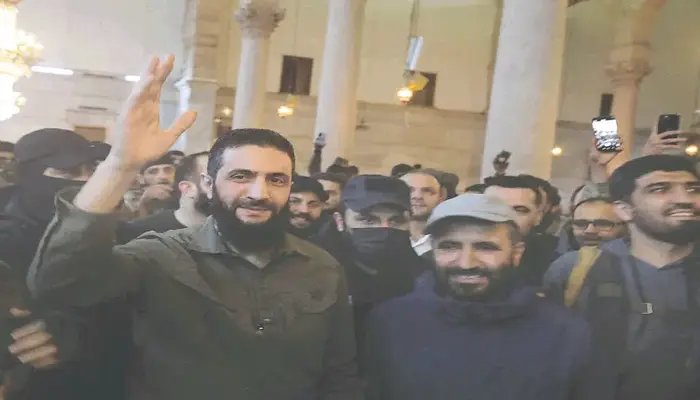Abu Mohammed al-Golani, the controversial leader of Hayat Tahrir al-Sham (HTS), has emerged as a key figure in Syria’s insurgent victory over President Bashar al-Assad. Once aligned with Al Qaeda, al-Golani has redefined his image, stepping into the spotlight as the de facto ruler of northwestern Syria. His journey from obscurity to prominence highlights the complexities of Syria’s civil war and its ever-evolving leadership dynamics.
Rise Through the Ranks
Born Ahmed al-Sharaa, Golani initially fought for Al Qaeda in Iraq, where he spent five years in US custody. After his release, he returned to Syria during the uprising in 2011. Under orders from Abu Omar al-Baghdadi, then leader of the Islamic State in Iraq, Golani was tasked with establishing Al Qaeda’s presence in Syria. He later founded the Nusra Front, which quickly became one of the most powerful factions opposing Assad.
In 2013, the US designated Golani a terrorist, citing his role in organizing suicide attacks and advocating for violent sectarianism. However, he distanced himself from Al Qaeda in 2016, severing ties and rebranding Nusra as Hayat Tahrir al-Sham.
Leadership in the Rebel Movement
Under Golani’s command, HTS evolved from a hardline Islamist faction into a more pragmatic force. This transformation culminated in the rebels’ sweeping offensive that led to Assad’s ousting. Videos showed Golani in military fatigues, issuing orders to his fighters and urging them to protect civilians during the takeover of major cities like Aleppo and Damascus.
This marked a strategic shift, as Golani worked to present himself as a leader of Syria’s mainstream opposition, rather than a figurehead of extremism.
Read: Horrifying Stories Emerge After Fall of Bashar al-Assad’s Government
Controversy and Criticism
Despite these efforts, Golani remains a polarizing figure. While some view his leadership as essential for uniting the opposition, others criticize his past affiliations with Al Qaeda and the violent tactics used by HTS. Turkey, a key backer of Syrian opposition factions, has designated HTS as a terrorist group, complicating the group’s efforts to gain broader acceptance.
Golani has consistently denied posing a threat to the West. In a 2021 interview, he stated that HTS opposes external attacks and emphasized that the group’s focus remains within Syria. “Even when we were with Al Qaeda, we were against operations outside Syria,” he said.
A New Chapter for Syria?
Al-Golani’s leadership represents a turning point in Syria’s ongoing conflict. While his transformation from an Al Qaeda operative to a prominent rebel leader has sparked debate, it reflects the fluid nature of power in the region. As Syria enters a new phase of uncertainty, Golani’s role will likely remain central to shaping the country’s future.
Follow us on Google News, Instagram, YouTube, Facebook,Whats App, and TikTok for latest updates
